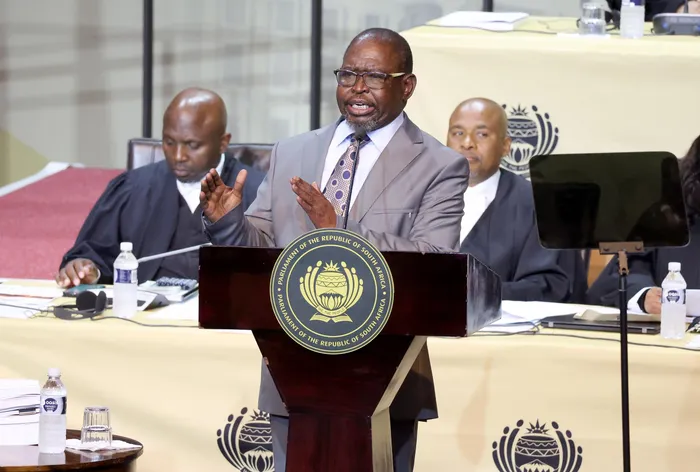Budget 3.0: reactions highlight hope and concerns for South Africa’s economy

Finance Minister Enoch Godongwana on Wednesday delivered the Budget speech in the National Assembly held at CTICC in Cape Town
Image: Kopano Tlape/GCIS
The 2025/26 budget presented by Finance Minister Enoch Godongwana on Wednesday has sparked a wave of mixed reactions from South African experts.
While the reversal of the VAT hike provides relief to citizens facing mounting living costs, the introduction of fuel levy increases has raised concerns about the impact on household budgets amidst an already challenging economic landscape.
On the surface, the budget appears to address some critical issues confronting ordinary South Africans. With global economic forecasts dimming due to rising geopolitical tensions and trade barriers, the International Monetary Fund recently adjusted its growth projections for 2025, lowering them by 0.5 percentage points since January.

Boipelo Ndimande, Chief Financial Officer at Consult by Momentum
Image: Supplied
"This precarious backdrop puts immense pressure on local fiscal policies," said Boipelo Ndimande, Chief Financial Officer at Consult by Momentum, emphasising the volatility of the current financial landscape.
"The importance of having a well-diversified, long-term financial plan cannot be overstated," she said.
Ndimande cautioned investors against making hasty decisions in response to the changing economy, urging them to consult financial advisers to ensure their portfolios are protected against impending economic headwinds.

Nkosinathi Mahlangu, Youth Employment Portfolio Head at the Momentum Group Foundation
Image: Supplied
Nkosinathi Mahlangu, Youth Employment Portfolio Head at the Momentum Group Foundation, noted the government's struggle to balance priorities under tough economic conditions.
While he welcomed sustained investments in education, early childhood development, and infrastructure, he expressed disappointment at the lack of targeted measures for the youth labor market, particularly given the country's staggering youth unemployment rates.
The absence of discussion regarding the Youth Employment Tax Incentive was concerning, along with a lack of clarity on transitioning Social Relief of Distress grant recipients into jobs.
Mahlangu praised the proposed job-seeker allowance and the reassessment of Active Labour Market Programmes but insisted that these initiatives require urgent implementation and alignment across government departments to create tangible job opportunities.
He highlighted the R1 trillion infrastructure pipeline as a silver lining, asserting that its success hinges on reaching underserved communities and providing visibility and pathways to employment for young South Africans.

Arno Jansen van Vuuren, Managing Director at Futurewise
Image: Supplied
Emphasising the importance of education, Arno Jansen van Vuuren, Managing Director at Futurewise, applauded the budget's focus on early childhood education through significant fiscal investments.
The additional R10 billion allocated to expanding ECD access is expected to assist 700,000 more children, while R9.5 billion is earmarked for teacher retention and staffing in provincial education.
van Vuuren said that these strategies signal a commitment to long-term economic growth through educational resilience, urging families to plan ahead for their children’s futures.
The renewable energy sector has also expressed optimism in light of this budget.

David McDonald, CEO at SolarAfrica
Image: Supplied
David McDonald, CEO of SolarAfrica, described the R219.2 billion allocation for enhancing South Africa's electricity supply as a "breath of fresh air" for the industry. The focus on renewable energy projects, particularly those that stabilize power supply and mitigate loadshedding, highlights the crucial function of Independent Power Producers (IPPs) in building energy resilience.
McDonald indicated that the forthcoming multi-line transmission package and the implementation of public-private partnership regulations will reduce bureaucratic barriers and better enable private sector participation in energy solutions.
He emphasised that in a tight fiscal environment, leveraging private capital and expertise is essential for growth and infrastructure development.
SUNDAY TRIBUNE